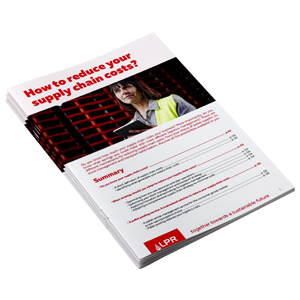There are currently 4 billion wooden pallets moving around Europe each year. The humble pallet, often invisible, is key to the storage, delivery, distribution and transport of almost everything in your home - and at your table.
Given the pivotal role of pallets in the movement of goods, the role that they also play in optimising the supply chain should not be overlooked.
What is pallet management, and why do I need to do it?
Managing your wooden pallets can be a tricky business.
Whether it is constantly considering whether the quality of the pallets bought are going to withstand the loads that you will put on them or whether they are going to be accepted at their final destination, this is all adding to time you could be spending on your business.
Retailer acceptance is an important point on its own
The vast majority of retailers have specifications which must be adhered to. Not doing so could land you in hot water – not to mention the collection costs to retrieve them – of that your products which may be damaged or even perish!
Finding a pallet supplier can be a long process
A supplier that can supply the pallets in the configurations that you need, when you need them, can be a timely process – from identifying suitable suppliers, making a selection and a final decision, this is all eating into your time. Not all suppliers are equal.
Pallet administration can be very time consuming
Particularly where you are using pallets not really up to the job. Pallet returns, dispute resolution with your supply chain partners and customers, damaged cargo, delivery delays and the cost of empty transport journeys can all add up, both in terms of time and money.
A transport solution
Looking at rental pallet management is one aspect of considering hidden costs, but isn’t the full picture – you need to consider it as part of your fleet management to really realise the cost savings.
First you need to make sure that you really understand how your pallet fleet management operates :
- How can you reduce those empty transport miles?
- How can you improve the economic optimisation of your supply chain?
Cost savings will follow by understanding the answers to these questions.
Flow management
Pallet management across Europe has been evolving and strengthening over the past 25 years, as has the logistics chain as a whole. Being able to take advantage of these improvements and optimisation processes can really lead to significant savings for your business.
Single use pallets vs pooled pallets
Using single use pallets
Purchased pallets, or single use, are, as the name suggests, usually bought, loaded and shipped to their final location. It’s a one off cost which means that they are often used for export, and are discarded after use, or burned in bonfires.
Because they are only intended to be used once, the single use pallets are usually poorly constructed, not properly load rated and therefore prone to breakage, so the cost of a pallet may not be its actual cost to your business. Delivering your goods to your customer on pallets which repeatedly fail could damage your reputation with your customer too.
In addition to the cost for handling pallets, they will need to be inspected before each use meaning additional manpower time lost in your business.
Whilst the initial cost of purchasing a single use pallet might seem a good deal, in actual fact, when you consider that it is easily broken, could damage your products or get stuck in your automation (or indeed fail on your forklift truck or high bay racking) leading to automation downtime, it could cost your business in both time and money.
The old adage of ‘buy cheap, buy twice’ rings true.
Opting for pooled pallets
A pooled pallet (or multiple use pallet) is made to be used repeatedly so is built with longevity in mind using better timber products and a nail pattern designed to add to its overall strength - with some pallets being capable of bearing loads weighing more than 400kg.
A pooled reusable pallet is also a more economical (and reliable) pallet in the long run. Built to a proven quality specification it requires no inspection before use (so less manhours in your business), has been inspected and prepared to be ready to use in manual and highly automated environments (leading to fewer episodes of downtime and lost productivity).
Using a pooled pallet means you only pay for what you actually use. No hidden costs or surprises - and using a pallet pooling service gives you access to dedicated tracking tools so you can monitor the movements of the pallets.
The decision to use rented pallets, rather than purchased pallets could lead to a reduction in initial cost and no capex, less business responsibility, less lost manhours, less downtime and could make your business more competitive and remove the hidden costs in your supply chain.
Pooled pallets also offer ecological benefits too. By reusing pallets you are supporting your own business CSR goals. Pooled pallets usually have a controlled end of life process where all elements are recycled.



